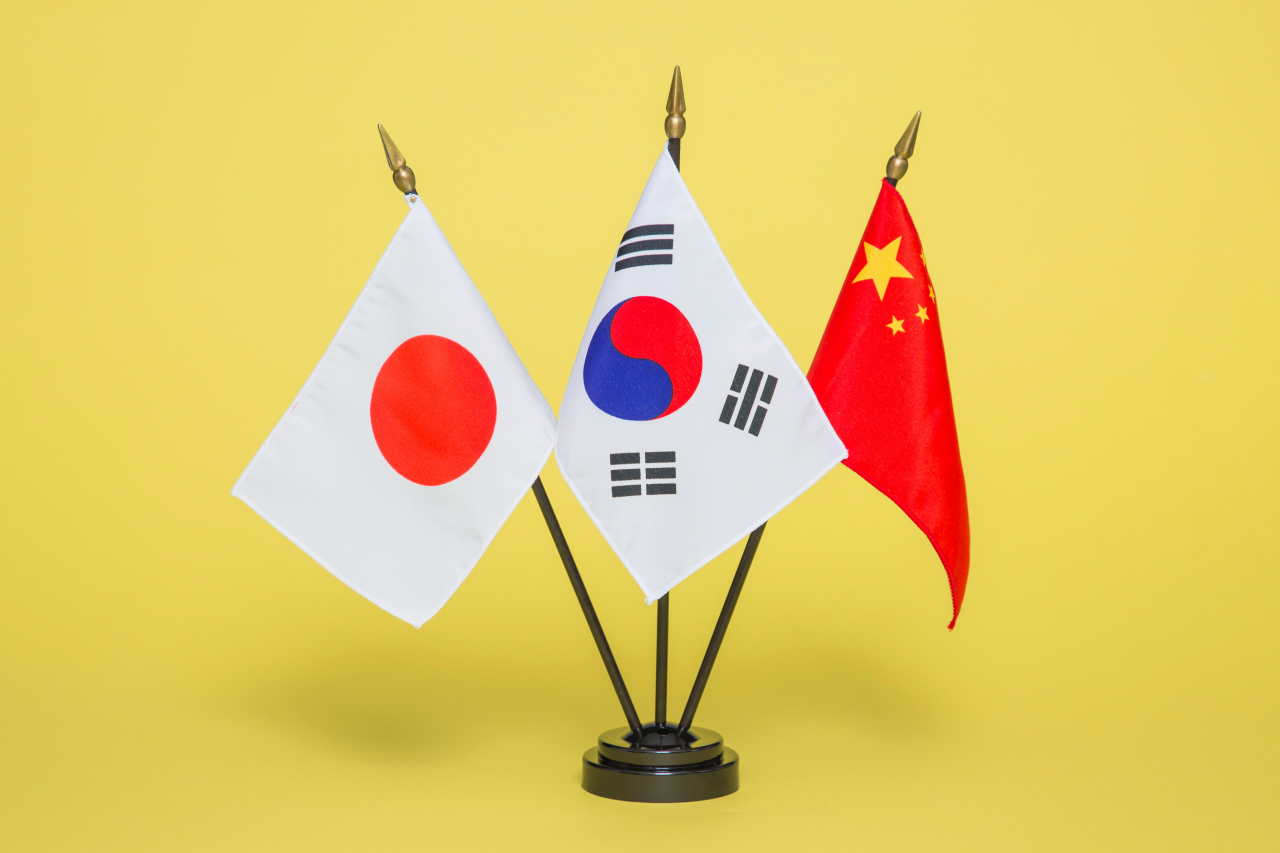 |
The flags of Japan, South Korea and China (from left to right). (123rf) |
South Korea still sees strong momentum for resuming three-way talks with Japan and China, a meeting Seoul will host this year after a four-year hiatus prompted by the COVID-19 pandemic, a source said Wednesday amid Beijing’s criticism of Seoul’s trilateral summit Friday with the US and Japan.
China says the landmark summit US President Joe Biden held with President Yoon Suk Yeol and Japanese Prime Minister Fumio Kishida at the Camp David presidential retreat is an attempt to pit China against the two American allies. The summit condemned China’s “dangerous and aggressive behavior” in the South China Sea, reaffirming peace and stability across the Taiwan Strait.
“The momentum for the three-way talks is still high and currently there aren’t any other signs indicating otherwise,” the source said on condition of anonymity. “At least three more meetings should take place to finalize summit preparations.”
A day earlier, the Foreign Ministry in Seoul dismissed any flare-up in tension between Korea and China, saying the Camp David summit is not meant to corner any countries. Stronger ties made there do not harm Seoul-Beijing relations, it added.
A senior ministry official underscored the fact that Seoul, Tokyo and Beijing are “fully aware of the need to resume regular exchanges,” without elaborating.
But analysts say the three-way meeting that usually focuses on expanding economic cooperation could produce little progress this time, even if it took place.
“China has just said the Friday meeting at Camp David had ‘smeared and attacked’ it. Can we expect something amicable at the three-way summit Korea will hold later this year? I have doubts,” said Chung Jae-hung, director of the Center for Chinese Studies at the Sejong Institute in Seoul.
China blasted the Camp David summit for encouraging “division, confrontation and the Cold War mentality,” referring to Taiwan, a self-ruled democratic island Beijing calls its own, saying it could take it over if necessary. The summit agreed on opposing changing the status quo by force.
Bolstering economic ties is “intertwined with the political climate,” which currently does not seem to be working to Korea’s advantage, Chung stressed, saying Seoul’s decision to openly back the US-led efforts to curb China’s influence in the region is antagonizing Beijing.
However, Korea’s push for closer ties with the US and Japan could rather be an opportunity, according to Kang Jun-young, a professor of Chinese studies at Hankuk University of Foreign Studies in Seoul.
“Korea should use the summit with Japan and China to better channel its concerns to Beijing that Seoul seeks friendly ties with China as well,” Kang said, noting China would be interested just as much in reopening the suspended talks this year to reel back Korea.
Kang added he does not expect Chinese retaliation, saying it would be too premature at the moment without reasonable grounds. In 2017, China enforced economic sanctions against Korea for its decision to host a US missile shield known as the Terminal High-Altitude Area Defense system, saying it could spy on its mainland. Korea disputes the claims.







![[Weekender] Korea's traditional sauce culture gains global recognition](http://res.heraldm.com/phpwas/restmb_idxmake.php?idx=644&simg=/content/image/2024/11/21/20241121050153_0.jpg)